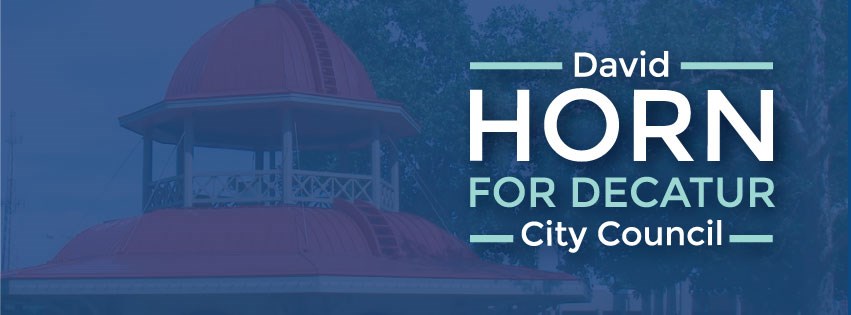
Decatur's 2025 budget falls short
By a 5-2 vote, the Decatur City Council moved one step forward to a 7% property tax increase for 2025. At its last meeting, the council approved the 2025 budget which assumed this tax increase that the council will finalize at its meeting on December 2. The $1.1 million increase in property taxes collected is poor public policy, unnecessary, and creates a strong disincentive to residing in the city or making improvements to one’s property. It is one of several concerns with the 2025 budget, a financial plan that will not advance Decatur’s strategic priorities at the pace needed nor change the trajectory of the city’s long-term challenges. Among the challenges of the budget:
1) Property taxes should not increase, but if they do, property tax collected should grow no more than 3%, which represents the growth in Equalized Assessed Value from annexations, new development and renovations te previous year. If we have $1.1 million to spend on an unnecessary water pipeline, we have the ability to substantially reduce or eliminate property tax increases for the coming year. Furthermore, city staff continue to offer limited suggestions to create new revenue without taxing residents such as reimbursing taxpayers for the demolition of the former YWCA building, repurposing the Oakley Sediment Basin or allowing a cannabis dispensary. Macon County had the 10th highest effective property tax rate in the United States in 2023 and the council continues to propose property tax increases that greatly exceed the city’s growth rates.
2) We are taking a significant step backward in the city’s number one priority: community revitalization. We don’t have the funds to create a city-wide neighborhood revitalization plan, move forward in a substantial way on the Jasper St. Great Streets/Great Neighborhoods plan, advance revitalization of the Oakwood Business District and Millikin Heights neighborhood, proceed more quickly on remediation of brownfields, and provide more funding for demolitions of delipidated buildings, housing rehabilitation projects, and roof replacement projects. As demonstrated by the Johns Hill Neighborhood improvements, cleaning up the neighborhood reduces crime. The city is holding a 90-day cash reserve when one governmental standard used by municipalities is less than 60 days. Thus, we have over $7 million more in cash reserves than is necessary and there is a significant societal cost to not giving the money back to taxpayers or using the funds in a meaningful way.
3) The Public Works Department is proposing projects in advance of the city council establishing policy potentially resulting in the unnecessary spending of millions of dollars. As one example, the city of Decatur gets its emergency water supply from DeWitt Co. well fields and there are two options for getting more water from these wells: surface water transport or transport via a pipeline with pipeline transport likely costing substantially more. The Public Works Department is unilaterally advancing a pipeline project instead of a surface water project without the council providing input. This will result in a $250,000 cost to taxpayers in 2025 for what may ultimately be an estimated cost of $45 million. This would be in addition to another proposed water pipeline from the former Vulcan mine pit in Harristown predicted to cost $32.3 million. The water derived from these projects far exceeds the city’s emergency supply needs and funding for these projects may come from issuing bonds, of which the debt is paid by property taxes.
4) While I am supportive of increasing the number of police officers and firefighters and the added positions in the 2025 budget are certainly justified, I am concerned about the impact it will have on long-term public safety pension obligations and our resident’s ability to pay them. Collectively, the city will be spending $14.8 million on fire and police pensions in 2025. To put that amount in perspective, this is more money than the general fund expenses for the Public Works Department ($11.7 million). The Decatur Police Department is the best police department in Central Illinois and the Decatur Fire Department is the best fire department in Central Illinois. However, the police and fire departments cannot solve the city’s problems on their own and reducing the amount of funds available to community revitalization while increasing the city’s long-term pension obligations and subsequent property taxes is not the answer. The real decision for the council to make is how do we spend revenue that will result in long-term decreases in calls for service to the police and fire departments as a result of increasing well-being and quality of life of our residents.
Ultimately, a budget is a reflection of the mission of the organization. The 2025 budget will fall short in advancing the strategic priorities approved by the council and it is unclear how the $96 million in general fund spending will reverse the city’s longstanding declines in population and workforce. For these reasons I voted no to the 2025 budget.
Citizens are encouraged to provide feedback about property tax increases and any other city matters to council members. If you would like to discuss city issues with a council member, phone numbers and email addresses for each council member can be found at the following link: https://www.decaturil.gov/300/Mayor-Council.
